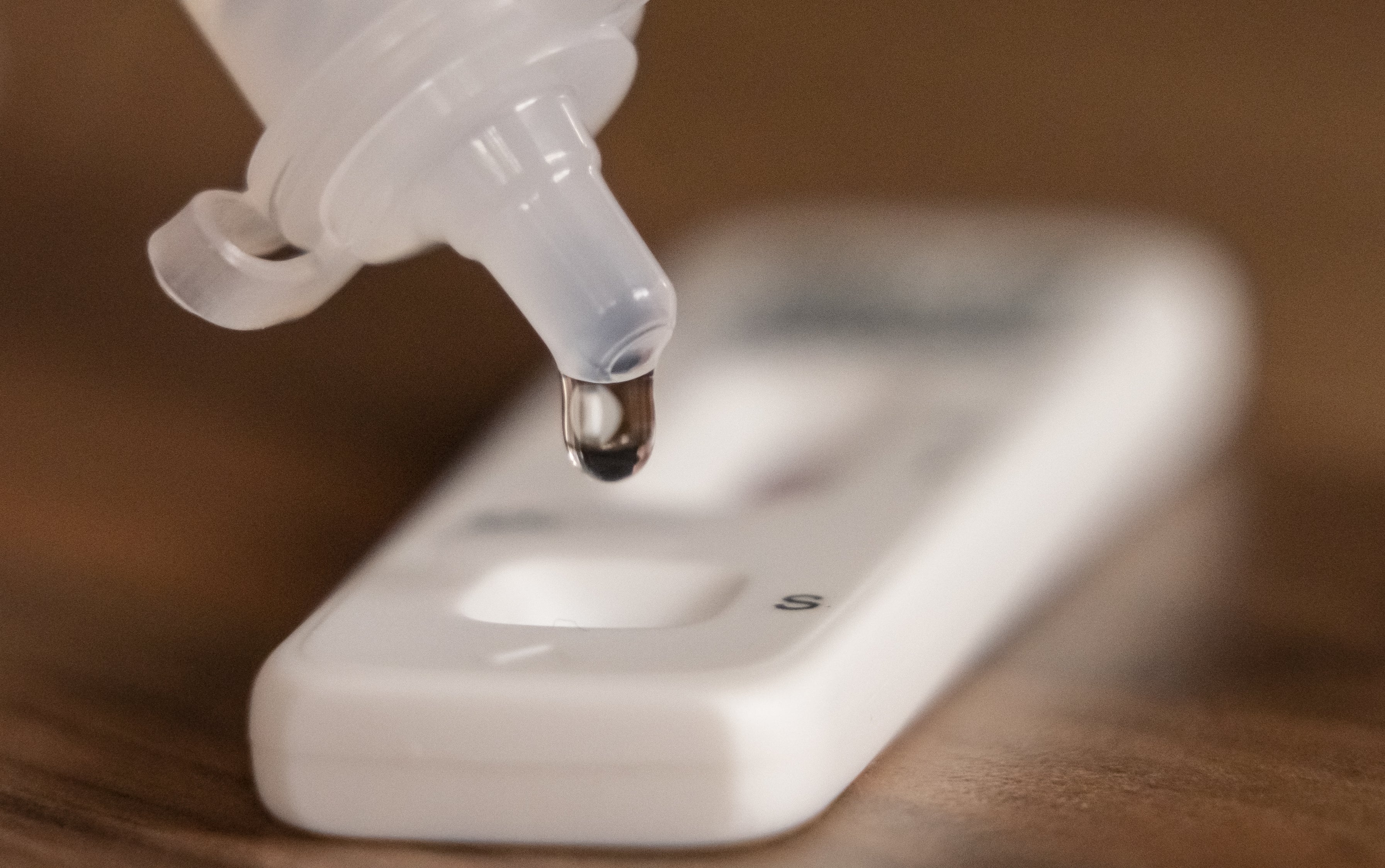Omicron less likely to result in long Covid among double-jabbed, figures show
The data is based on research by the Office for National Statistics.

Your support helps us to tell the story
From reproductive rights to climate change to Big Tech, The Independent is on the ground when the story is developing. Whether it's investigating the financials of Elon Musk's pro-Trump PAC or producing our latest documentary, 'The A Word', which shines a light on the American women fighting for reproductive rights, we know how important it is to parse out the facts from the messaging.
At such a critical moment in US history, we need reporters on the ground. Your donation allows us to keep sending journalists to speak to both sides of the story.
The Independent is trusted by Americans across the entire political spectrum. And unlike many other quality news outlets, we choose not to lock Americans out of our reporting and analysis with paywalls. We believe quality journalism should be available to everyone, paid for by those who can afford it.
Your support makes all the difference.The Omicron variant of Covid-19 is much less likely than Delta to result in long Covid in people who have had two doses of vaccine, new figures suggest.
Data shows the odds of double-vaccinated adults infected with the Omicron BA.1 strain reporting having long Covid four to eight weeks later were 50% lower than those who had Delta.
The experimental statistics, published on Friday, also suggest there is no evidence of a difference in risk of long Covid between first infections with Delta compared to the Omicron BA.1 and BA.2 variants among triple-vaccinated adults.
The Office for National Statistics (ONS) figures show that prevalence of self-reported long Covid for doubled-jabbed adults infected with the Delta variant was 16%, compared to 9% for Omicron BA.1.
However, for triple-vaccinated adults the socio-demographically adjusted prevalence of self-reported long Covid was between 7% and 9% for the three variants.
But the ONS said the odds of triple-jabbed adults reporting long Covid symptoms four to eight weeks after first being infected were 22% higher with the Omicron BA.2 variant compared to the BA.1 strain.
There was, however, no statistical evidence of a difference in the likelihood of activity-limiting long Covid between the Omicron BA.1 and BA.2 variants, it added.
The ONS said: “Among double-vaccinated, adult study participants, the socio-demographically adjusted prevalence of self-reported long Covid four to eight weeks after a first coronavirus (Covid-19) infection compatible with the Delta variant was 15.9%. This is compared with 8.7% for infections compatible with the Omicron BA.1 variant.
“Among triple-vaccinated adults, there was no statistical evidence of a difference in the adjusted prevalence of self-reported long Covid between first infections compatible with the Delta variant and those compatible with either Omicron BA.1 or Omicron BA.2.
“However, adjusted prevalence was higher for infections compatible with Omicron BA.2 (9.3%) than it was for those compatible with Omicron BA.1 (7.8%).”
Self-reported long Covid is defined as symptoms persisting for more than four weeks after a first suspected coronavirus infection that could not be explained by something else.
Separate figures from the ONS, also published on Friday, show an estimated 1.8 million people in the UK were likely to be experiencing symptoms of long Covid in the four weeks to April 3, the equivalent of 2.8% of the population.
This is up 6% from 1.7 million people a month earlier, and includes 791,000 people who first had Covid-19, or suspected they had the virus, at least one year ago – the highest number so far.
Long Covid symptoms are estimated to be adversely affecting the day-to-day activities of 1.2 million people, around two-thirds of those with self-reported long Covid.
Some 346,000 people (19%) reported their ability to undertake day-to-day activities has been “limited a lot”, the ONS said.
Fatigue continues to be the most common symptom (experienced by 51% of those with self-reported long Covid), followed by shortness of breath (33%), loss of smell (26%) and then difficulty concentrating (23%).
The ONS said prevalence of self-reported long Covid was greatest in people aged 35 to 49, females, people living in more deprived areas, those working in social care, teaching and education or health care, and those with another activity-limiting health condition or disability.
The ONS figures are based on self-reported long Covid from a representative sample of people in private households in the four weeks to April 3.